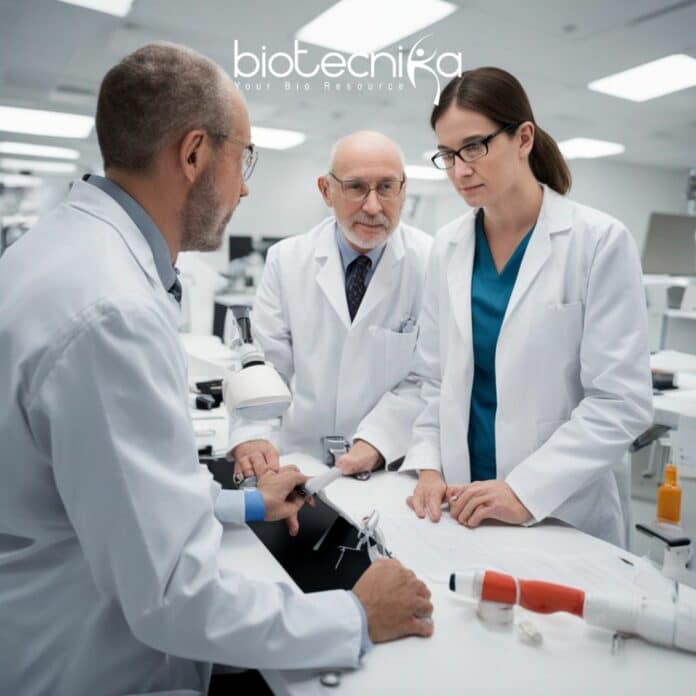Genesis Therapeutics, a startup specializing in AI-driven small molecule drug design, has secured $200 million in Series B financing, marking one of this year’s largest funding rounds for an AI-focused biotech.
Prominent Investment Partners:
The funding round is jointly led by Andreessen Horowitz (a16z) Bio + Health and an anonymous life science investor. The Burlingame, CA-based company has previously established collaborations with industry giants Eli Lilly and Genentech.
Enhancing AI Technologies and Pipeline Expansion:
Genesis plans to utilize the funds to further advance its generative and predictive AI technologies. This investment will also facilitate pipeline expansion and propel the progress of the company’s first computer-generated drugs into clinical studies.
Rooted in Foundational Studies:
Genesis’s foundation is rooted in pivotal studies conducted by its Stanford University founders in 2018 and 2020. The initial study introduced a neural network named PotentialNet, which was designed to optimize the binding of small molecules to their respective protein targets. The subsequent study claimed an unprecedented ability to predict absorption, distribution, metabolism, elimination, and toxicity of drug candidates using deep learning techniques.
Secrecy Surrounding Technological Progress:
While the details of Genesis’s advancements remain undisclosed, the company’s CEO Evan Feinberg shared insights in an interview with Endpoints News. Although he refrained from naming specific targets, diseases, or clinical study timelines, he did mention cancer as an area of focus. The new funding will empower Genesis to expand its internal pipeline further.
Focus on Complex Targets:
Genesis’s pipeline is focused on challenging or data-scarce targets that pose difficulties or have limited known compounds capable of binding to the proteins.
Diverse Investor Base:
New investors in Genesis include major players such as BlackRock, Fidelity, and NVentures (Nvidia’s venture capital arm). The Series B round also saw participation from returning investors like T. Rowe Price, Rock Springs Capital, Radical Ventures, and Menlo Ventures. The total funding secured by Genesis since its inception in 2019 amounts to $280 million.
Part of a Well-Capitalized Trend:
Genesis joins a league of well-capitalized companies such as Atomwise, Exscientia, Insilico Medicine, Insitro, and Recursion Pharmaceuticals. These companies have collectively attracted substantial investments to revolutionize small molecule discovery and design through AI integration.
The AI Revolution in Drug Design:
Vijay Pande, founding general partner at a16z Bio + Health and a former Stanford professor, shared his perspective on the expanding role of AI in drug design. He envisions an AI revolution in the field of chemistry, with various well-funded players contributing to advancements.
Balancing AI and Fundamental Science:
During his time as a graduate student in Pande’s lab, Feinberg focused on developing AI technologies tailored for drug discovery. He aimed to create models that respect the principles of chemistry and physics, aiming to bridge the gap between AI and fundamental science.
Uniting Disparate Pillars:
Feinberg highlighted that Genesis’s approach is centered around unifying deep learning and physics-based methods, creating a synthesis that enhances both disciplines.
The Challenge of Compound Screening:
Genesis has also developed a generative AI tool for designing drug-like molecules computationally. However, the crucial aspect lies in effectively screening these virtual compounds to identify those with promising drug properties.
Attention to Detail in Drug Design:
Feinberg and Pande emphasized that while generating virtual structures is relatively straightforward, the critical step is accurately predicting a compound’s properties that qualify it as a viable drug. Even minor deviations can have substantial consequences in drug design.
Future Plans and Growth:
With approximately 50 employees, Genesis spans locations in Burlingame and San Diego. Feinberg anticipates augmenting the development team to support forthcoming clinical trials. However, exact hiring goals remain undisclosed.



